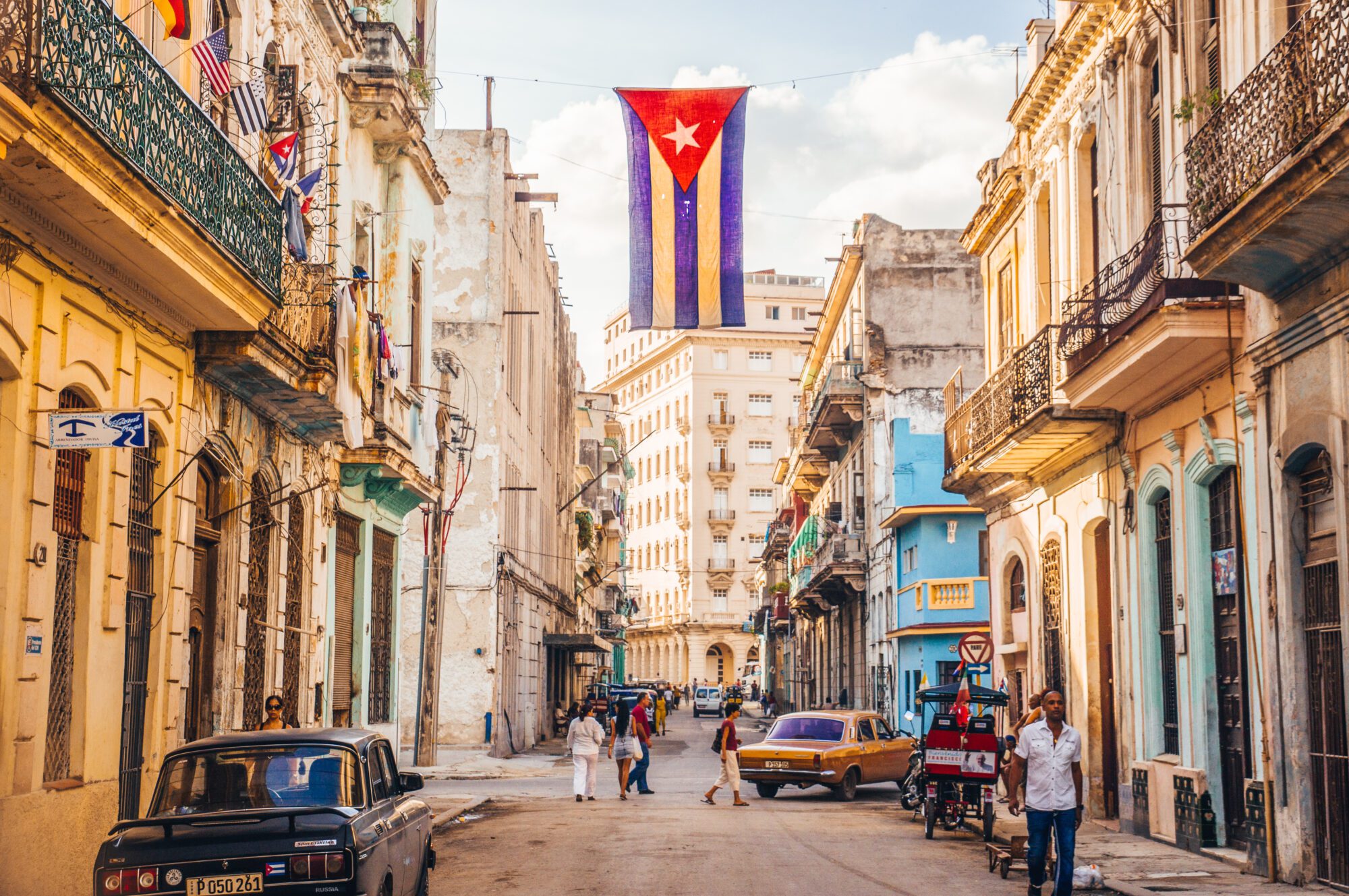
Havana, Cuba
Julian Peters Photography / Shutterstock.com
Advocates of a free Cuba and the release of its political prisoners are reminding Europe not to forget about the poverty and oppression Cubans suffer at the hands of the long-standing communist regime.
“The European Union should read beyond the narrative exported by the propaganda of the Castro regime,” Carolina Barrero, a writer and activist self-exiled in Spain after participating in demonstrations in 2021, told The European Conservative.
Barrero notes that under the Political Dialogue and Cooperation agreement, the EU sends millions of euros to Cuba every year that end up going directly into the coffers of the regime. Only Lithuania and Sweden have opposed the ongoing agreement, according to Barrero, despite Cuba sending troops to support the Russian invasion of Ukraine.
According to the Cuban Observatory of Human Rights (OCDH), 2023 has been one of the worst years for political authoritarianism since the communist revolution 65 years ago. The Cuban regime committed at least 3,830 “repressive actions” in 2023. The report considers last year “disastrous” for respect for rights and freedoms on the island, due—among other reasons—to the application of a new Penal Code.
The OCDH estimates that around 1,000 political prisoners remain in Cuban prisons, although it warns of other tactics such as house arrest, totalling 952 cases and serving to deactivate opposition movements. Furthermore, it emphasizes the “emptying of the opposition and civil society,” by forcing dissidents to leave Cuba to avoid going to prison. The organization said in a statement that it is aware of “at least 438 repressive actions” in the month of December alone.
The report also noted that international criticism seems to have left Cuban president Miguel Díaz-Canel unmoved. He has not changed the “desolate panorama of exile, imprisonment, harassment and intimidation against opponents,activists and journalists” despite ongoing pressure to do so.
Additionally, the organization warns, all Cubans are facing a dire economic situation, not expecting “the regime to even cover the most pressing needs of its citizens.”
2021 represented a year of hope in Cuba, after the historic ‘11-J’ mobilizations, which continued into 2022 with widespread protests for basic services. In contrast, 2023 was marked by a gigantic economic crisis that has led the Revolution’s leadership to opt for the most aggressive change of direction since the infamous “special period” at the end of the eighties.
Although the standard of living in Cuba is chronically low, the year just ended saw the dismal quality of life for most Cubans sink even lower.
The OCDH estimates that 88% of Cubans now live in extreme poverty, 13% more than in 2022. OCDH considers that a three-member household is in ‘extreme poverty’ if their total income is $1.90 per day or less.
The situation is likely to worsen. Last month Díaz-Canel announced an end to the universal subsidies that applied to basic utilities and even drinking water. In its place is a harsh adjustment program that includes increased prices of electricity, fuel, drinking water and other public services. He justified this move—one that will most deeply affect the already impoverished—as a measure to strengthen equality in the country.
“It is not fair that those who have a lot receive the same as those who have very little. Today we subsidize the same amount to an elderly pensioner as to the owner of large private businesses who has a lot of money,” Prime Minister Manuel Marrero recently said of the imminent shock plan.
Currently the official monthly minimum wage in Cuba is just over €7.40, in an economy where the dictatorship has admitted that the island’s GDP contracted during 2023. Inflation, a scourge that pulverizes Cubans’ already scarce resources, also stood at around 30% at the end of 2023.
The dictatorship has attributed the widespread shortage of goods and services on the island to productivity problems in the local economy, but also to the impossibility of having enough hard currency to import the large amount of products it requires, as well as the usual scapegoat of the “economic blockade” by the United States.
In the midst of all this, the human rights situation nationally continues to deteriorate. At the end of November, the NGO Prisoners Defenders put the number of political prisoners at 1,062, with the dictatorship imprisoning an average of 15 new people each month.
Within this group of prisoners there are at least 34 who have not even reached the age of legal adulthood, further demonstrating the practice of carrying out summary trials in which several detainees are grouped into the same “case” settled through an express process.
More than 200 of these prisoners have been given sentences greater than 10 years in prison, with the state often arguing that they were guilty of sedition. OCDH accounts also show that since 2018, the Castro regime’s repressive political machinery has arbitrarily detained nearly 11,000 Cubans.
“As Europe continues to look away from the reality and to be complacent with the Cuban reality it will continue to feed its own enemy forces,” Barrero warns.
